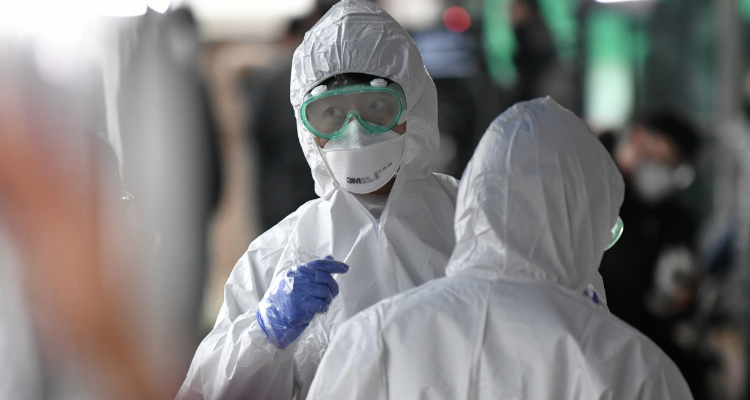
SHARE
READ & LEAVE A COMMENT

As the worldwide COVID-19 pandemic continues world leaders, government officials, medical experts, and local communities are urging people to stay-in-place with official lockdowns around the world. The term “social-distancing” has become equivalent to the term “social media” in its usage and virtual reality and at-home social reality has become the new norm, or has it?
Many millennials and other generations of Americans have not yet truly felt the reality of the effects of the Coronavirus. Gatherings are still being held as people leave their homes for non-essential means. House parties and private gatherings were dismantled by police after the stay-at-home order was enacted in Chicago, IL. March 21, 2020.
As educational institutions ranging from school-aged children to universities closed, students of all ages have now been at home, and the timing of spring break vacation has still motivated some families, millennials, and 20-somethings to maintain their travel plans. On Tuesday, March 24, 2020, the state of California closed its state parks including beaches to keep partygoers and visitors from gathering to stop the spread of the COVID-19 virus.
Why would anyone place themselves or others at risk by not altering their lives during a deadly pandemic? Perhaps it is due to a lack of information reaching people, as network live news is not on the general millennial playlist. Perhaps it is due to leadership sending mixed messages. Perhaps it is due to a true lack of concern as many millennials feel “untouchable” with relation to health and mortality as a Harris poll from March 13, showed 67% of millennials said they are “unlikely” to catch the virus. Perhaps it is due to a lack of trust in leadership or the healthcare system. While all of these are contributing factors into the mindset of Americans over the age of 18, the most prominent and immediate factor is due to the lack of tangible change affecting the psyche where it presents.
While unemployment soared to a record 3.2 million claims in the week ending on March 21, 2020, according to the U.S. Department of Labor, the actual monetary effect is yet to be fully felt by many Americans. Jobless and at home with few work fields able to allow employees to work remotely, Americans are at home and rather than feeling a crisis, many are feeling a sense of vacation.
Americans not struggling to put food on the table or have not experienced COVID-19 directly, the idea and action of staying at home for 14 days have been somewhat if not completely ignored. Anyone staying at home is now experiencing cabin fever where the vacation or “stay-cation” is over but not according to experts. The discretion of the individual to determine when to get back to “business as usual” exists because the reality of COVID-19 has not been felt. Instead, the comfort of one’s own home has provided exactly that; comfort – tangible, psychological comfort.
Food, internet, tv, streaming, entertainment, gaming, social media, as well as utility essentials such as electricity, heating and or air-conditioning, gas, water, and all other material amenities have not been altered. Even services such as take out and food delivery have not stopped for millennials to maintain their eating habits even if they never step outside, leaving the crisis of a pandemic not to be realized.
Despite a lack of income, the true economic effect has not yet been felt by many Americans, as a frozen or quietly draining bank account is not something touchable in the hands of anyone. Streaming subscriptions, cell phone payments, food delivery, and the “once in a while that has now become the regular” non-essential purchases have been maintained and many have not yet had to make financial cutbacks curving the comforts of home. Until electricity is shut off (which utility companies have vowed not to stop services), or the status quo of materialism changes within each home for each individual, the illusion that life is still normal remains.
Many Americans including millennials are not reflecting the sentiments of warnings from the world to “prepare for the worst but hope for the best” during these uncertain times. The heedlessness by individuals seeking to gather, travel, and complain that entertainment and businesses are not open, is a huge misstep that will only prove to become more harmful if the virus continues to spread.
Millennials should lead by using their tech-savvy social media skills to spread accurate information and be part of influencers who are satisfied and thankful.
Making the most out of staying in place; not to prolong the closures and restrictions of “normal life”, as life itself is what is at risk, is what is needed. Otherwise, the illusion of normalcy will amount to a paramount of psychological self-deception, as the material tangibles of comfort could soon disappear.
About Alexandra V. Maragha:
Alexandra V. Maragha is Founder of AlexandraMedia.com, author of Communicating Encouragement, and Co-Founder & Editor-In-Chief of Today’s Boomer; a generational lifestyle magazine. She is an educator and journalist with over 10 years of combined experience and earned her bachelor’s degree in Communications, Media and Theatre. Alexandra has applied her skills in communicative theory, messaging, and investigative journalism into a unique approach to teaching and leading while empowering others in the process of communication to maximize learning and understanding.
Follow Alexandra on Twitter and visit her website alexandramedia.com for more communicative insights and trends!
SHARE
READ & LEAVE A COMMENT